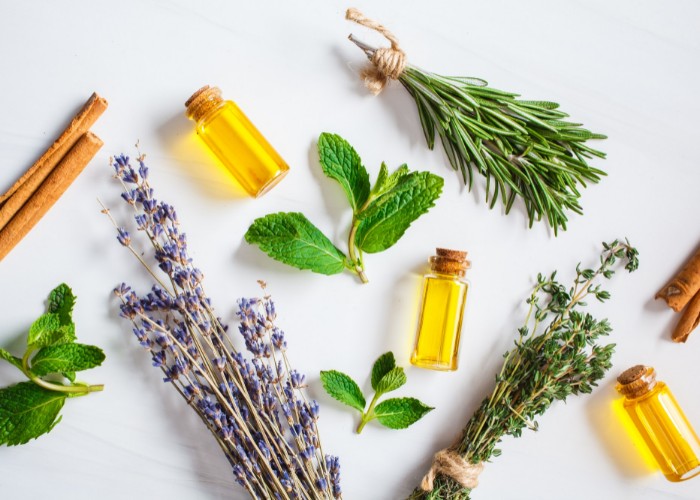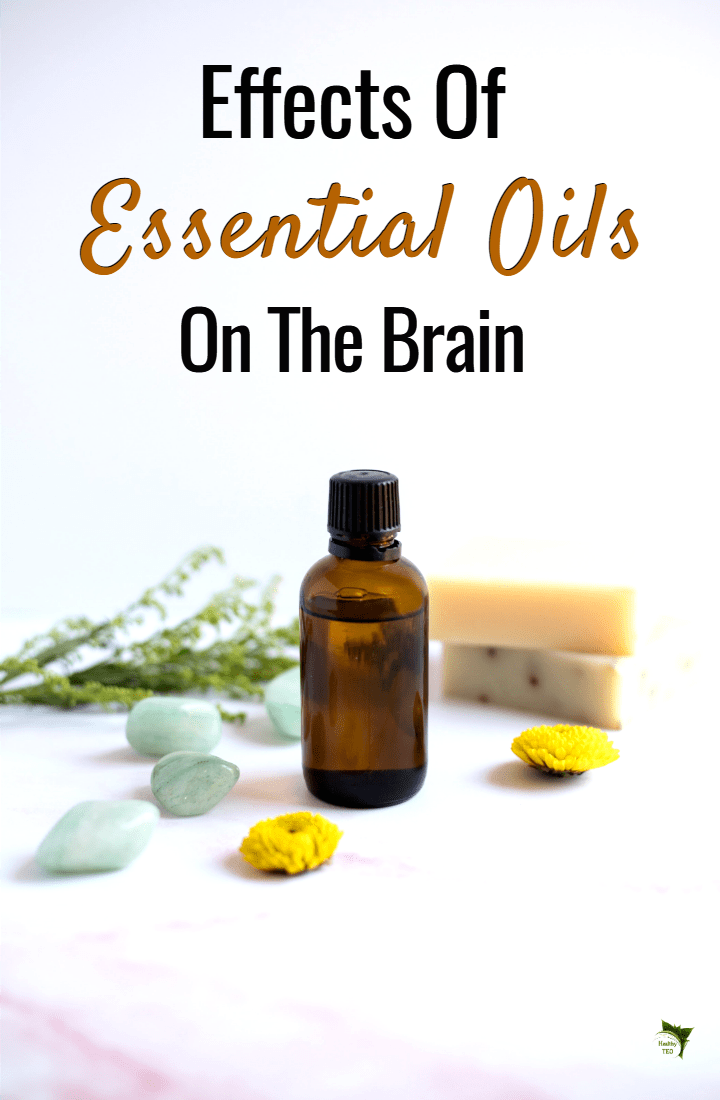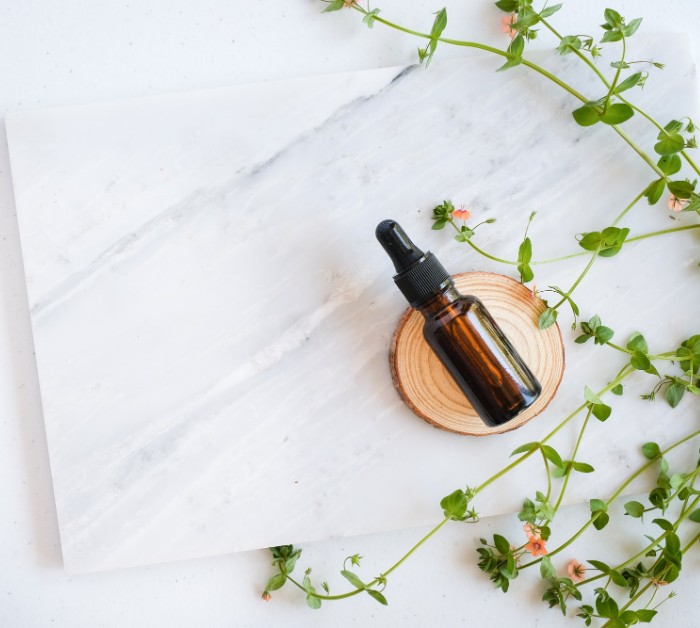Effects of aromatherapy on the brain
Before start using a diffuser for essential oils, it is good to know what are the effects of essential oils on the brain. How to use it properly and what is the recommended dosage.
First, let’s see what are essential oils and why are they good for our health?
There is an abundance of studies that show just how ‘essential’ many essential oils are for maintaining a healthy brain, healing injury, and improving cognitive performance.
With this in mind, wouldn’t it just make “scents” to incorporate essential oils into your regular health regime, or combine them with other home remedies for brain health?
What’s that savory smell in the air…? Is it coming from the flowers in the corner of your room or kitchen table? Or perhaps a soft breeze slowly drifted to your nose through the window above your herb garden…
Whatever the source, it is well known that many plants have unique scents and other distinguishable properties that create sensation within our nervous systems.
Over time, we have been able to capture the natural essences of plants and preserve them in oils to create several sweet-smelling products.
Essential oils have been used for aromatherapy and topical remedies for thousands of years, but recently, supplements containing essential oils from natural plant sources have also begun to grow in popularity.
This post may contain affiliate links, which means we may receive a small commission, at no cost to you, if you make a purchase through a link. For more information, please see our disclosure.
Effects Of Essential Oils On The Brain
Essential oils stimulate the limbic system – the part of the brain involved in memory, mood, motivation, and behavior.
And, scientific studies demonstrate that the purest essential oils are powerful plant medicines that have a wide range of emotional wellness applications, including depression.
In inhalation aromatherapy, the inhaled air containing essential oils can not only reach the circulation system via the blood capillary network in the nose and the bronchi in the lungs but also stimulate brain areas directly via the olfactory epithelium.
Essential oils trigger mechanisms in the brain via the olfactory system. The mechanism of action of essential oils administered by inhalation involves stimulation of the olfactory receptors cells in the nasal epithelium, about 25 million cells, connected to the olfactory bulb.
After stimulation, the signal is transmitted to the limbic system and hypothalamus in the brain through the olfactory bulb and olfactory tract.
Once the signals reach the olfactory cortex, the release of neurotransmitters, for example, serotonin, takes place which results in the expected effect on emotions related to essential oil use
Access the full study to learn more, here.
According to the National Association of Holistic Aromatherapy, essential oil is an oil extracted from a plant through careful steam distillation, resin tapping, and cold pressing.
Essential oils get extracted from many parts of the plants including flowers, barks, stems, leaves, roots, and fruits.

Essential oils for brain function
Supplementation of peppermint oil has been suggested to energize our bodies and improve exercise performance, in part, through increased blood flow throughout our bodies and to the brain.
With increased blood flow to the brain comes increased functionality! This works similarly to how our brain reacts to exercise.
It is well known that exercise is great for your brain’s health and function. Exercise increases blood flow to the brain, thereby conferring several benefits to the brain, helping us to feel more energized in general.
Organic spearmint/peppermint essential oils have also been shown to improve performances in cognitive tests, as well as reduce the mental fatigue associated with performing long bouts of mentally enduring tasks.
It is thought that the increased mental performance is related to improved neuronal excitability and regulation of the metabolites involved in stimulating brain synapses.
Here is a beautifully crafted ceramic essential oil diffuser designed out of the highest quality porcelain for aromatherapy.
Essential oils for brain injury
Injury to the brain can be life-changing, and symptoms of brain injury can act as a barrier to engaging in a healthy lifestyle. One of the common symptoms of brain injury is inflammation.
Essential oils have been traditionally inhaled to help to reduce the effects of the pain-inflammation cycle that appears following brain injury.
Studies have come to show that this may be due to the characteristic ability of essential oils to pass through the blood-brain barrier with relative ease.
This allows the oils to reach the site of injury and reduce the inflammation more effectively.
Dr. Axe writes that Frankincense is an essential oil that is great for reducing inflammation (along with improving a cohort of other health outcomes).
Healing is improved by increasing blood flow and oxygen to the site of injury. This increased blood flow and provision of oxygen to the affected tissue (such as a bruised brain) helps to filter out the byproducts that contribute to inflammation.
Essential oils promoting blood flow to the brain may, therefore, help to reduce the symptoms brought on by inflammation in the brain after injury.
A variety of articles indicate that Frankincense, along with other essential oils such as Melissa, Myrrh, Cedarwood, and Clove all contain an oxygen-carrying molecule that assists in the healing process.
Essential oils for concussion
Concussions are one of the most widely discussed forms of brain injury. Following an injury to the head, a concussion can leave people with several symptoms including headaches, lack of focus or attention, and dizziness.
Improved techniques for treating concussions have begun to spread quickly, especially over the last several years.
Current standards are to rest and avoid any activity that may worsen symptoms. This can include things such as heavy exercise, looking at screens, or other mentally engaging activities.
As with any injury to the body, blood flow is key to improve recovery rates and in the healing process.
Again, Frankincense may be a great option to include in your wellness plan to improve blood flow to the brain and flush out the metabolites that can cause the symptoms associated with concussion.
Lavender oil is also recommended for use as it promotes relaxation which is key in recovering from a concussion.
Essential oils for brain fog
Brain fog is considered to be a symptom of inflammation of the brain or other forms of injury (such as a concussion).
A study concluded that people often describe brain fog with terms such as “forgetful”, “difficulty focusing, thinking, and communicating”, as well as “cloudy” (promoting that foggy mental imagery).
Triggers of these symptoms seem to stem from fatigue, lack of sleep, prolonged standing, dehydration, and feeling faint.
With this in mind, it comes as no surprise that essential oils that promote sleep and rest can be beneficial for improving the effects felt from brain fog.
Combining lavender oil with sleep hygiene has been shown to promote sleep quality and quantity, and thus may show some benefit for reducing brain fog through reduced fatigue.
Interestingly, it was also found that the combination of the essential oil and practicing sleep hygiene was more beneficial to improving sleep quality and duration than just engaging in sleep hygiene habits alone.
Essential oils for focus and concentration
In a world filled with information and distraction, there are days where we could all use a little more focus and concentration.
Essential oils have been historically used to promote focus and concentration by helping to regulate our nervous systems.
This can be achieved by either calming and slowing our minds down or by speeding them up.
As with any aspect of a healthy lifestyle, maintaining balance is key. Using essential oils to either stimulate or relax the mind to improve focus and concentration should be practiced in moderation.
Think of it as you might with caffeine: having an early morning cup of coffee can help to focus your mind, but having too much caffeine can also cause your mind to figuratively bounce around from topic to topic in your head.
Similarly, a brain relaxant such as camomile tea can work in the opposite way, where you can hone your thoughts by relaxing your mind, but at the same time, consuming too much can also put you to sleep!
The aromas of various essential oils can impact our nervous system compared to odorless solvents.
For instance, pepper oil, estragon oil, fennel oil, and grapefruit oil have been shown to increase sympathetic activity compared to placebo.
With a controlled increase in the activity of the brain, we can process information at a more effective rate, thereby improving cognitive performance.
Calming the mind and reducing the activity of the nervous system can also help to improve concentration and focus.
Vetiver oils have been studied to help improve the focus of children in classrooms who display attention deficit behaviors.
Rosemary oil has also been shown to improve cognitive function where the greater the concentration of its molecules in the bloodstream, the quicker and more accurately participants were able to complete cognitive tasks.
Essential oils for memory retention
As a part of the cognitive function, we often use memory as a basis for measuring brain health.
The good news is that essential oils have been studied for their use to improve memory!
One study demonstrated that sage oil supplements were found to improve word memory in young adults.
Another study showed that Acori Gramineae rhizoma oil improved memory and learning (as participants made fewer mistakes on memory-based tests) by modulating certain hormones and chemical messengers in the brain.
It is also believed that Anthriscus essential oils can reduce the effects of memory impairment after inhalation, and therefore the essential oils may be useful in the application with conditions such as Alzheimer’s.
How To Use Essential Oils Safely
Quality matters
Organic oils from reputable companies or homegrown are the best. You want pure, organic, and authentic oils to decrease the likelihood of adverse reactions.
Dilute certain oils
Those rich in aldehydes (e.g., citronellal, citral) and phenols (e.g., cinnamic aldehyde, eugenol) should always be applied with a carrier oil like almond, coconut, or avocado. Mixing irritant oils with others to create a blend can also reduce an adverse reaction.
Application
Oil may be applied to the skin or diffused with relatively no risk. Some essential oils are ingestible.
However, ingesting oils is not recommended unless under the advisement of a qualified herbalist or alike. Anecdote: It is never one size fits all.
Most aromatherapy oil-based blends will be between 1 and 5 percent dilutions, which typically does not represent a safety concern.
As one increases dilution, potential dermal (skin) reactions may take place depending on the individual essential oil; and the area in which the oil is applied.
One may be sensitive to a particular essential oil, just as they may be sensitive to a specific food. So, make sure to take precautions is always recommended.
Not one size fits all:
A particular oil may invite relaxation for one and may create the opposite reaction for another. We need to remember that we are all bio individuals.
People with specific allergies to ragweed and other plants need to be more careful about having a similar reaction to oils.
Age matters
Babies and young children may be more sensitive to the potency of essential oils.
Certain oils should be avoided, used highly diluted, or under the guidance of a knowledgeable professional. To prevent reactions, applying diluted oils to the soles of the feet is often recommended in younger children.
Particular caution should be exercised with potentially toxic essential oils such as Birch and Wintergreen which are both high in methyl salicylate, Eucalyptus which is high in 1,8 cineole, and Peppermint which is high in menthol. Elderly clients may have more skin sensitivities so a reduced concentration/dilution may be indicated.

Final thoughts about essential oils and their effects on the brain
As we can see from all written above essential oils have positive effects on brain function.
It is important to remember that you must use essential oils in small quantities. On every bottle will be written recommended dosage.
For any health problem consult with your doctor. This article is only to inform you and learn something new.
Sources: collective-evolution.com fullscript.com




